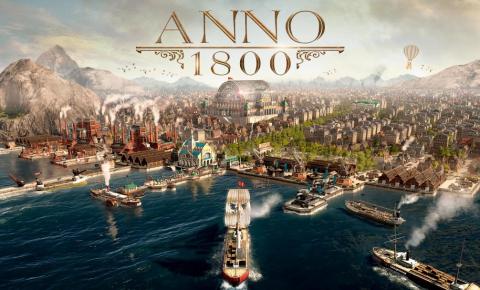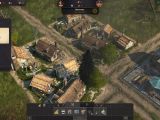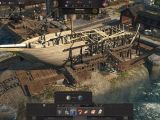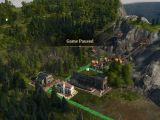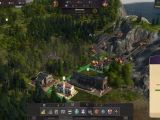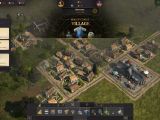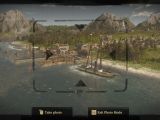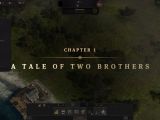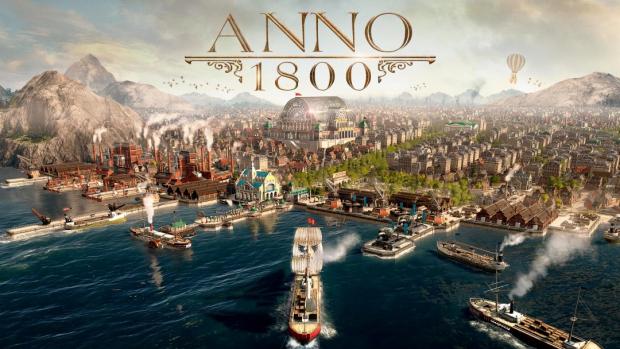Building cities on islands and connecting them with commerce seems to be the perfect way to spend a rainy Saturday afternoon. When that game is Anno 1800, that afternoon becomes even better.
The city building genre has a handful of genuinely successful franchises that managed to survive through the ages. The first game in the series was released all the way back in 1998, and six other titles were launched in the meantime. It’s an achievement that few franchises can claim.
What’s even more interesting than the longevity of the series is the fact that conceptually, the game didn’t actually change all that much in the last 20 years. Sure enough, Anno 1602 was much more straightforward and easy to manage, but all of the basic ideas that make Anno great were there from the beginning.
Players have to develop islands and connect them with commerce. The last few installments in the series added combat, and now, this latest game had combat and city building in the same maps. It’s a small step towards something more complicated, I’m sure, but for now, it should be more than enough.
In games like Anno 1800, the legacy is something very difficult to ignore, and the reason for that is really simple. While the game is sure to attract people that haven’t played any of the past titles, that’s not going to be the bulk of players. The same people that initially played Anno 1602 are going to give this one a try just because it has the name, and those gamers are the most critical of the bunch.
Story
Players don’t usually expect a story in city-building games, and that’s true for the most part, but the Anno series is a little bit different. The same Blue Byte studio is also making the Settlers series, and its influence is easily spotted in the way the story is interwoven with the gameplay.
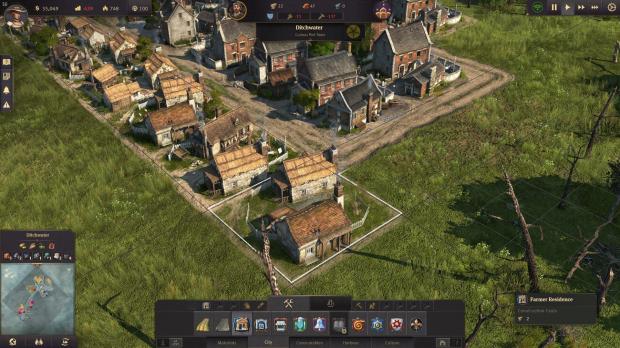
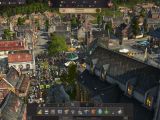

Make no mistake, Anno 1800 is a very complex game, and it’s challenging to master, even if it might seem easy when you first start it. The story is implemented in such a way to ease players into the gameplay by slowly unlocking technologies and concepts. If Anno 1800 thrusts everything at the player at once, it would be overwhelming.
In story mode, you take on the role of an heir to magnate that died in unusual circumstances, in prison, after being accused of being a traitor to the crown. You slowly start to ammas money and resources with the hopes of finding out what exactly happened.
Unlocking new steps in the story usually coincides with essential steps that have to be taken into the gameplay as well, unlocking new mechanics and technologies. I initially dismissed the story, but I found myself wondering what happened and it became a driver. It’s not stellar writing, but it’s more than enough to provide more incentive.
Gameplay
I could simply say that Anno 1800 is a city-builder and be done with it, but the game is much more than just that. The way it blends commerce, diplomacy, and a little bit of war is exceptionally well done. In the end, the game somehow is more than just the sum of its parts.
Players start by colonizing a small island and trying to fulfill the ever-increasing demands of the citizens. Having a clear idea of the requirements and the amount of workforce provided is imperative, and you can clearly see on the top of the screen. Very few things are worse than not having enough workers.
In fact, this is one of the major issues that players always have to deal with, and that’s figuring out why people are leaving the city. It’s easy to track because it usually means that some of their needs that were fulfilled are not getting resources.
Let me paint a picture. For some reason, your residents are not getting enough clothes, and you quickly realize that you’ve been exporting what you believed to be excess. So, you stop exporting clothes, but it’s still not enough. Now you have to build sheep farms and factories to make clothes, but that means you actually need more people, which you don’t have. Next step is to figure out what industry you can make without to steal their workers.
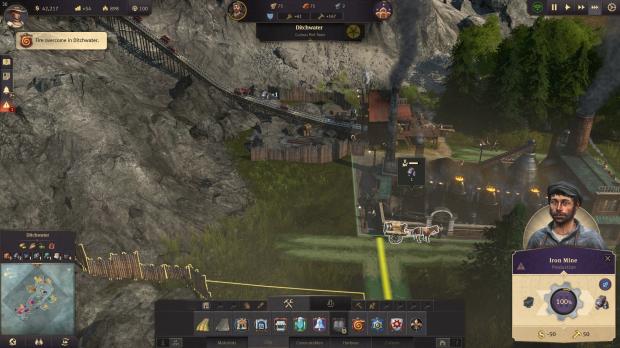


This type of scenario happens more than anything, but it’s somehow organic, and it shouldn’t bother players. It’s a problem that needs to be solved, and finding out the solution is the reward. Moreover, returning from the brink of disaster doesn’t feel impossible, and people will get a second chance if they screw up.
I have to say that Blue Byte’s decision to keep the same type of gameplay largely intact, at least for the base game, was a good one. I don’t want to learn to play something from scratch, and I can rely on what I already know from previous games.
Unfortunately, one of the things that survived from previous titles is the trading mechanics. I’m happy to say that while it’s much better, the entire implementation is still kind of wonky. I can’t put my finger on it, but it seems unnecessarily complicated.
In theory, the system will allow a ship to pick up merchandise and sell them across the map, with multiple stops and waypoints, but anything that needs more than one destination and a return trip is a headache.
The gameplay is not perfect, and some annoying problems pop up all the time. For example, just moving the mouse across the screen can cause the user to catch and move buildings around. It’s not common, but it happens enough to times to notice it.
Graphics
City-building games usually look good, and Anno 1800 definitely looks the part. But in these games, the little things matter more than just how it looks on the whole. There are two important aspects that players will notice.
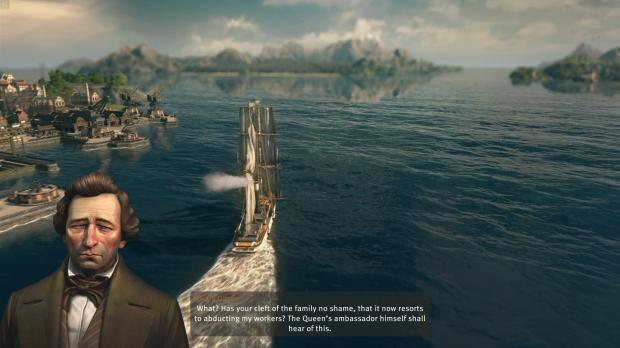


The first one is water. Given the fact that most of the game world is water, it needs to look good, and people won’t be disappointed. It’s one of the distinguishing features of Anno 1800 and the series in general.
The second aspect is comprised of little things like animations for building upgrades or how the cobblestone blends into the roads, for example. Everything is drawn down to the smallest detail, and this trait is visible everywhere. It looks more like a drawing, and less like an engine powering a game.
The Good
- A blend of legacy gameplay and modern features
- Beautiful graphics and animation
- Impressive water
- Surprisingly interesting story
The Bad
- The trading mechanics is will wonky
- Multiplayer available, but why?
Conclusion
For some strange reason, Anno 1800 also comes with an online component, and you can play against other people online. I guess it makes sense, in a way, but in my mind, this type of game was always a solitary one. I don’t know if I’ll ever be tempted to give this a try, but for now, Anno 1800 is being played offline.
I can’t recommend Anno 1800 enough. I was legitimately worried that Ubisoft might try to bring the entire franchise into the present, but I’m happy to say that my fears were unfounded. The game is a love letter to the old city-building games, while still managing to innovate and surprise even veteran players.
 14 DAY TRIAL //
14 DAY TRIAL // 